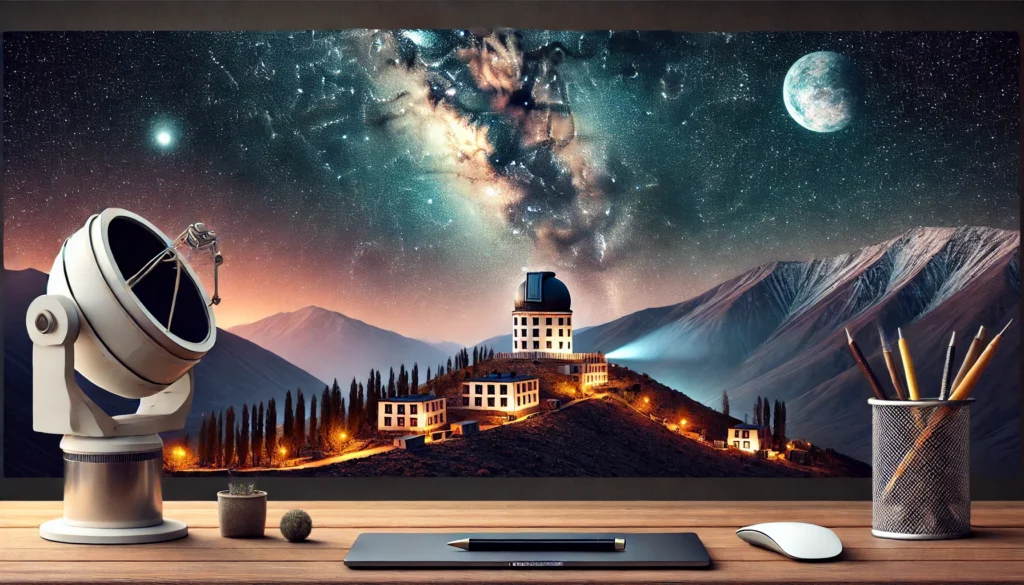Hanle village, deep amidst Ladakh’s breathtaking sceneries, has just become a beacon for India’s first night safari dedicated to stargazing and celestial explorations. In addition to the unpolluted night sky of Hanle, the initiative marks a milestone on the way to sustainable tourism and community engagement.
The Initiative
The night safari astro-tourism project was conceptualized as a niche venture at Hanle in Ladakh to capitalize on the unpolluted skies. It is known as one of the darkest places in the world, giving an unparalleled view of celestial phenomena. Thus, Hanle becomes a perfect destination for astronomy enthusiasts and astrophotographers.
The Indian Astronomical Observatory, located at Hanle at an altitude of 4,500 meters, forms the nucleus of this endeavor. Scientific research has always been a hallmark of this observatory, but now it has plans to stretch out its scientific experiences for the masses, with visitors being taken on night safaris so that they might witness the wonders of the universe up close.
Implementation
The Ladakh administration collaborated with the Department of Science and Technology (DST) and local authorities to lead the development of the night safari. A few crucial steps were taken to ensure that the project was a success:
- Infrastructure Development: Development of specialized equipment like telescopes and sky observation kits for visitors. Development of comfortable and eco-friendly accommodations for tourists that are designed to have a minimum impact on the environment.
- Dark Sky Reserve: It has been declared as a Dark Sky Reserve. Another step was further taken and strengthened with respect to strictness about preventing light pollution. Policies were adopted regarding the regulation of artificial lightings, and preserving its natural darkness for stargazing, followed by the villagers.
- Community Involvement: Training was given among the locals, considering them as guides and facilitators towards the tourists. Astro-tourism with some possible economic benefits: workshop education of the importance to preserve the natural skies with villagers
- Tour Packages: Curated night safari packages were developed in order to have stargazing activities and Ladakhi cultural experiences to give tourists a holistic journey.
Steps Adopted to Benefit the Village
The night safari project is as much about Hanle’s community as it is about tourism. And several steps were taken to make sure the main beneficiaries of this initiative are the local population:
- Employment Opportunities: Local youths were empowered to work on telescopes, lead tourist groups, and comment on Ladakhi traditions. For example, it directly offered employment opportunities.
- Vocational Skill Development: The villagers were trained in hospitality management. This helped the villagers increase the capacity to serve international and domestic tourists.
- Cultural Heritage Preservation and Promotion: Through music, food, and crafts, Ladakhi traditions could be showcased with the night safari experience. This would promote the rich cultural heritage of the region.
- Environmental Awareness: Programs were conducted enlightening the community on how to adopt sustainable practice that will ensure that the tourist visit does not disrupt the ecological balance in the village.
Conclusion
An exemplary example of how scientific resources, natural beauty, and community efforts amalgamate for something extraordinary comes in the form of the night safari astro-tourism at Hanle. Not only has this put Hanle on the astro-tourism map for the world, but it is also a sustainable model that is lifting local communities above nature.
As more travelers start coming to witness the beauty of the galaxy in clear skies over Hanle, this small Ladakhi village is poised to be the cornerstone of India’s emerging astro-tourism industry.



